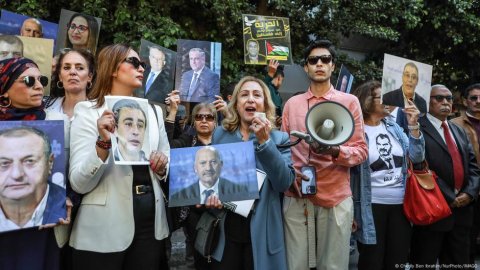Understanding Tunisia as a Safe Country for Asylum Seekers
As the global landscape of migration continues to evolve, the question of whether Tunisia can be classified as a safe country for asylum seekers has garnered significant attention. With increasing numbers of individuals fleeing conflict, persecution, and economic instability, the importance of evaluating the safety of host nations becomes paramount. This article delves into Tunisia’s status as a prospective destination for asylum seekers, examining the country’s political climate, human rights record, and the overall safety of individuals seeking refuge.
Tunisia’s Political Climate
In recent years, Tunisia has experienced a tumultuous political landscape, particularly following the Arab Spring in 2011. The revolution led to the ousting of long-standing President Zine El Abidine Ben Ali and initiated a wave of democratic reforms. However, the subsequent years have seen a mix of progress and setbacks.
Key points to consider about Tunisia’s political climate include:
Human Rights Record in Tunisia
Human rights are a critical consideration when assessing the safety of a country for asylum seekers. Tunisia’s human rights record has seen improvement since the revolution, yet significant challenges persist.
Important aspects of Tunisia’s human rights situation include:
Assessing the Safety of Asylum Seekers
The safety of asylum seekers in Tunisia is a complex issue that requires a nuanced understanding of various factors. While Tunisia offers a more stable environment compared to some neighboring countries, there are still significant risks involved.
Factors influencing the safety of asylum seekers in Tunisia include:
International Obligations and Responses
As a member of various international organizations, Tunisia has obligations to uphold human rights and protect vulnerable populations. However, the effectiveness of these commitments is often questioned.
Key aspects of Tunisia’s international obligations include:
The Role of NGOs and Civil Society
Non-governmental organizations (NGOs) and civil society play a crucial role in advocating for the rights of asylum seekers in Tunisia. They provide essential services, legal assistance, and support networks for individuals navigating the asylum process.
The contributions of NGOs in Tunisia include:
Conclusion: Evaluating Tunisia’s Asylum Landscape
In summary, assessing Tunisia’s status as a safe country for asylum seekers requires a multifaceted approach that considers its political climate, human rights record, and the social dynamics at play. While Tunisia offers a more stable environment compared to some conflict-stricken neighbors, significant challenges remain.
Asylum seekers must weigh their options carefully, considering:
Ultimately, while Tunisia may not be the ideal safe haven for every asylum seeker, it does present opportunities for those seeking refuge from dire circumstances. Continued international attention and support for Tunisia’s asylum system will be essential in fostering a safe and just environment for all individuals in need of protection.










